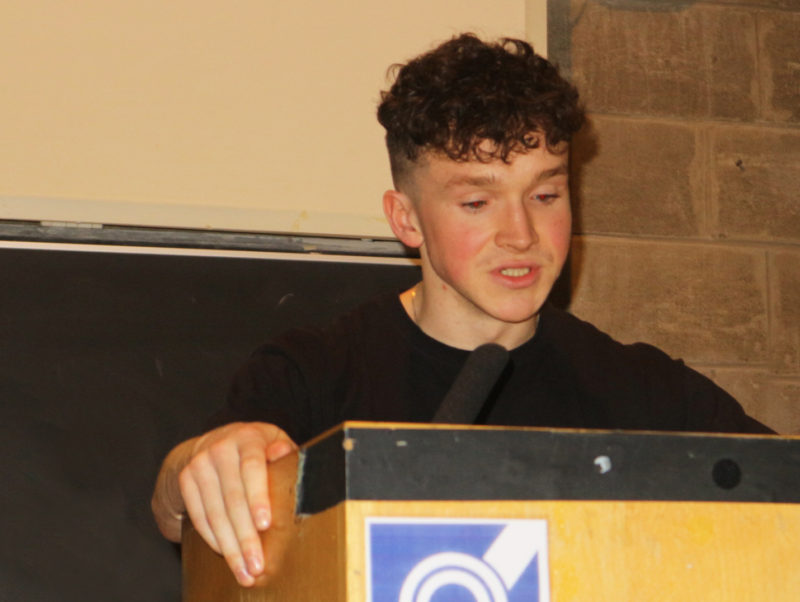It was an evening of high tension in the Arts Block on Tuesday as the J M Synge Theatre played host to one of Trinity Politics Society’s most talked-about annual events: the Battle of the Parties. The event gives on-campus political groups the chance to discuss their beliefs, debate with their counterparts and attract new members.
At the outset, PolSoc Auditor Harry Humes asked the audience to “keep it very tame” throughout a series of speeches delivered by an all-male panel. Perhaps unsurprisingly, this plea was ignored by some members of the crowd.
Even among students, few things are more polarising than party politics. Those in attendance made no secret of their distaste for some representatives – Con Óg O’Laoghaire from the Irish Freedom Party came in for a particularly tough time – and the speakers often went for each other on a night that ultimately offered more spats than solutions.
In a performance that lacked much by way of surprise factor, Obi Ekoba of Trinity Young Fine Gael said his was “the party of personal liberty and freedom”. Tate Donnelly, the founder of Trinity Young Greens and the only speaker to incorporate Irish in his speech, later rebuked this with a nod to Direct Provision – a “stain on our country” – and the rising costs of higher education, transport and rent.
Some speakers were more polished than others: Hugh Murphy from Trinity Labour tailored his speech to the crowd with several mentions of his party’s opposition to higher education fees. But Murphy admitted that it was regrettable that Labour was in coalition with Fine Gael at the time when higher education fees were raised.
Cillian Gartlan, Chair of Trinity Social Democrats, attempted to toe the line between ideology and pragmatism, referencing his party’s “refreshing honesty in terms of what is realistic and what has been proven to work”.
If Gartlan focused on what works, O’Laoghaire took a different approach, launching an attack on many forms of modern life. In an adversarial speech that landed on social media’s perils and called internet news a form of “psychological warfare”, O’Laoghaire blasted the move within politics from “a battle of solutions to a battle of stigma”.
At the other end of the political spectrum, Trinity People Before Profit speaker Adam McQuillan used Take Back Trinity to argue that his party is “the most active one on campus”. David Worth from the Workers’ Party said a Leninist party could create a society “free from unemployment, poverty, racism and sexism”.
Perhaps surprisingly, there was only one mention of Brexit – from Ógra Sinn Féin representative Niall Brennan, in an ideological speech that called for increased funding for social housing and higher education.
Clad in the colours of Dublin University Philosophical Society (the Phil), Harry Hogan of Cumann Wolfe Tone – the Trinity branch of Ógra Fianna Fáil – was the evening’s most accomplished speaker. Hogan’s speech was less heavy, more humourous, and he got applause for a mention of the evening’s lack of gender diversity.
A questions and answers session after the speeches revealed little: candidates pointed to statistics rather than policy changes when questioned about gender equality.
If the aim of the participants was to engage and empower young students to join their cause, few succeeded. Students want promises of tangible change, something that none of the speakers could offer.







